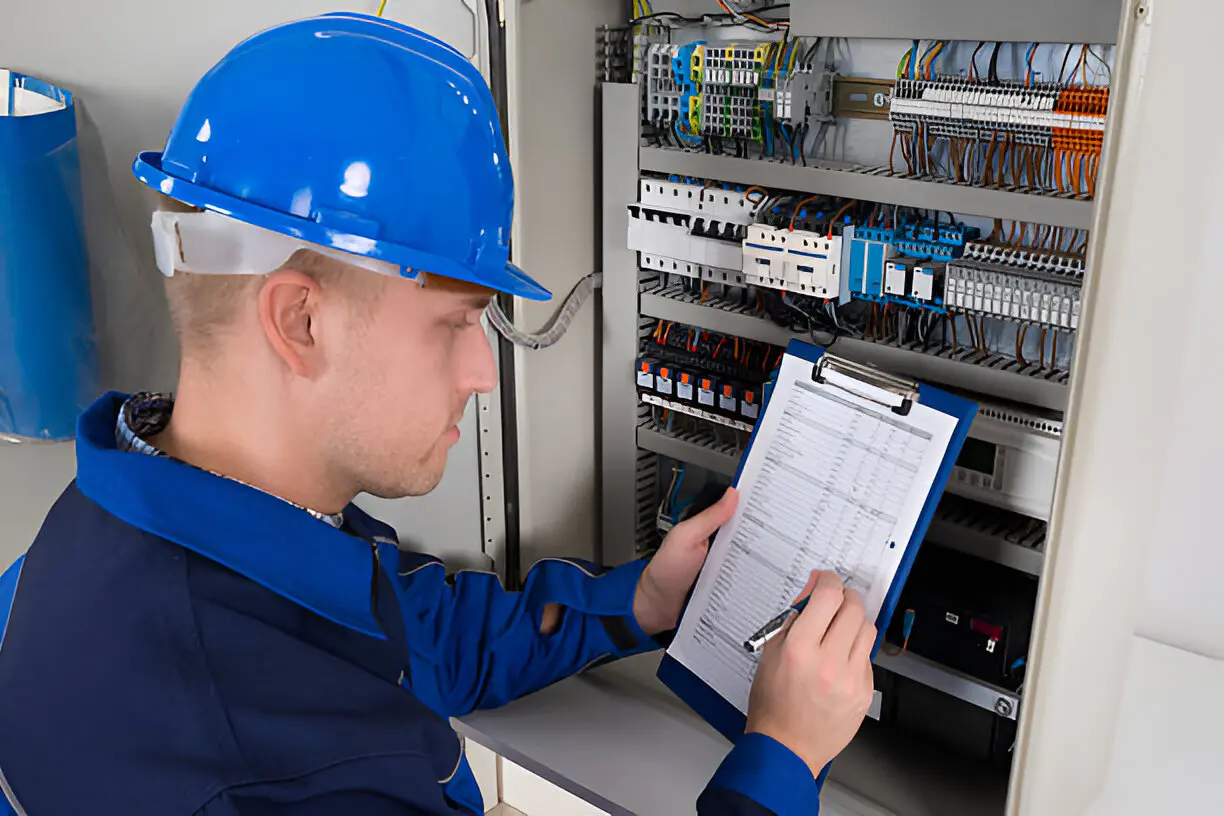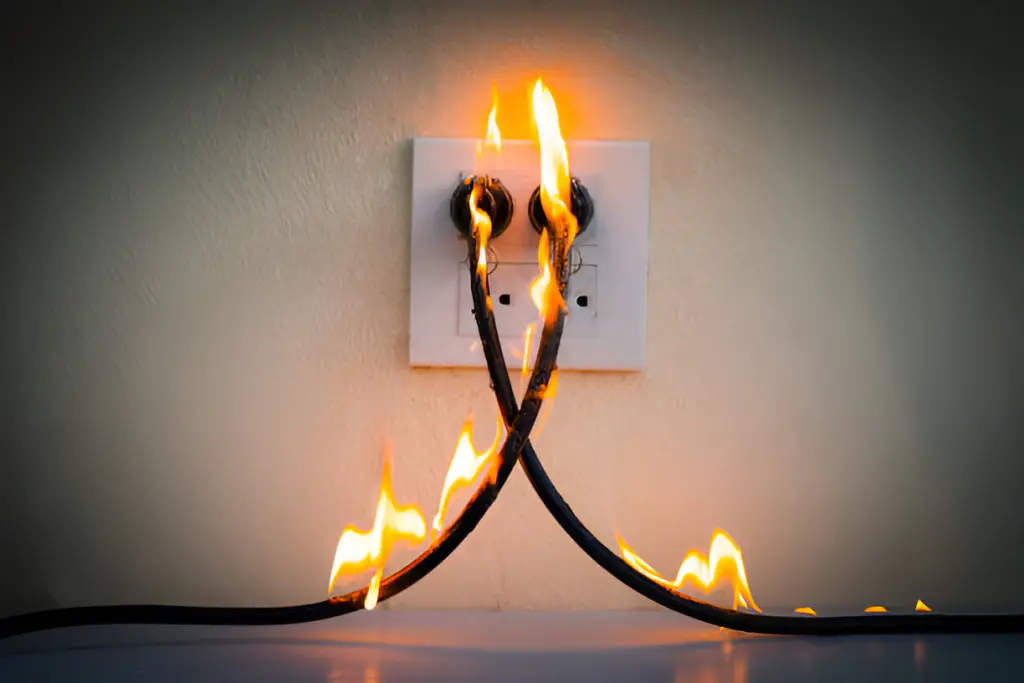The question of whether an Electrical Installation Condition Report (EICR) is mandatory is not only pertinent for landlords and tenants but is also critical for ensuring the safety and compliance of any residential rental accommodation in the UK. Under the current regulations, landlords are obligated to arrange for these inspections every five years or whenever there is a change in tenancy to assess the safety of the electrical systems. The real question, however, revolves around the broader implications of these regulations. What are the consequences for landlords and tenants if these standards are not met? As we explore the nuances of this requirement, it becomes clear that the stakes are significantly high, not just in terms of legal compliance but also regarding the safety and well-being of tenants. Let’s understand Is Eicr Mandatory?

What is an EICR (Electrical Installation Condition Report)?
An Electrical Installation Condition Report (EICR) is a formal document produced by a qualified electrician or approved contractor after they have conducted a thorough inspection and testing of the electrical installations within a property.
This detailed assessment scrutinizes the adequacy of earthing and bonding, identifies any deterioration, defects, or hazardous conditions, and assesses the overall safety of the electrical system.
The EICR process involves visual inspections and a series of instrument tests to verify the safety and functionality of circuits and equipment against the national safety standard for electrical installations.
Critical to this process is identifying overloaded circuits, potential electric shock risks, and fire hazards. The report will categorize defects based on the level of danger they pose and provide recommendations for remedial actions.
The benefits of conducting an EICR are substantial. It not only enhances electrical safety, preventing potential accidents but also contributes to the efficiency and longevity of the property’s electrical systems.
Regular EICRs can help in identifying issues before they become serious, leading to significant cost savings on emergency repairs and ensuring compliance with evolving safety standards.
This proactive approach is crucial for maintaining the integrity and safety of electrical installations.
Legal Requirements for EICR in Rental Properties
In the United Kingdom, stringent regulations mandate the completion of an Electrical Installation Condition Report (EICR) for all rental properties. This requirement underscores the commitment to ensuring electrical safety standards are maintained, safeguarding both landlord responsibilities and tenant rights.
The EICR must be performed by a qualified electrician to assess the safety of electrical installations and to identify any deficiencies or potential hazards.
Engagement through key points includes:
- Frequency of Inspection: Regulations specify that EICRs should be conducted at least every five years or upon a change of tenancy, whichever comes first. Landlords must adhere to this timeline to ensure continuous safety compliance.
- Documentation and Compliance: After inspection, a report is provided detailing any observed damages, deterioration, or non-compliance. Landlords are required to supply a copy of this report to their tenants within 28 days of the inspection, reinforcing transparency and accountability in maintaining tenant rights.
- Rectification and Penalties: If the EICR identifies issues that require remedial work, landlords must complete the necessary corrections within a specified timeframe, typically 28 days.
Failure to comply can lead to significant legal repercussions, including fines and restrictions on renting out the property.
Why is EICR Important, or is EICR mandatory for Safety?
The Electrical Installation Condition Report (EICR) is crucial for ensuring the ongoing safety of electrical systems within rental properties. This comprehensive assessment serves to identify any deficiencies or non-compliances that could pose significant electrical hazards. Such hazards not only threaten property integrity but critically impact tenant safety.

The meticulous inspection covered by the EICR encompasses a detailed examination of the electrical installations against the national safety standard for electrical installations. This scrutiny helps in detecting deteriorations, defects, and conditions conducive to damage which might lead to serious consequences if left unaddressed.
Moreover, the EICR process involves testing fixed electrical parts, including wiring, socket outlets, light fittings, and fuse boxes, ensuring all components meet rigorous safety protocols. This is pivotal in preventing potential electric shock or fire hazards arising from aged or faulty electrical systems.
Regular EICR checks, thus, become an indispensable preventive measure, safeguarding tenants from accidents and landlords from liability issues.
In essence, EICR is not just a procedural formality; it is a fundamental practice in risk management, emphasizing the importance of maintaining electrical systems in optimal condition to uphold safety and compliance within rental accommodations.
Who Needs an EICR and When?
Landlords, property managers, and business owners must obtain an Electrical Installation Condition Report (EICR) to comply with legal safety standards. This crucial document assesses the safety of electrical installations within a property, aiming to mitigate risks associated with faulty wiring and other electrical hazards.
The requirement for an EICR is not uniform and varies according to specific circumstances and property types, which necessitates an understanding of both EICR exemptions and EICR frequency.
The following points outline key considerations:
- Landlords and Property Managers: Must ensure an EICR is completed every five years for residential properties or on change of tenancy. This frequency ensures compliance and ongoing safety for tenants.
- Business Owners: Commercial properties require an EICR at intervals not exceeding five years. This interval might be shorter depending on the business type and the electrical load experienced by the installation.
- EICR Exemptions: Certain temporary structures, booths, and locations with low electrical risk may be exempt from mandatory EICR checks, though a risk assessment is advisable to confirm safety compliance.
Understanding and adhering to these requirements is essential for maintaining electrical safety and legal compliance in properties.
Consequences of Not Having an EICR
Failing to secure an Electrical Installation Condition Report (EICR) can lead to substantial legal and safety repercussions for property owners and managers. The absence of this critical certification can result in severe EICR implications, including hefty fines, invalidated insurance policies, and potential legal actions. Given the regulatory framework governing electrical safety standards, EICR enforcement mechanisms are robust and designed to ensure compliance.
Non-compliance not only exposes the property to a heightened risk of electrical failures, fires, and accidents but also places occupants at serious risk, which can escalate to legal liabilities for negligence. This negligence can be penalized in sectors where EICR is mandatorily required, such as in rented residential properties, commercial buildings, and public spaces. Property owners might face prosecution or substantial fines if an electrical mishap occurs that could have been detected by an EICR.
Moreover, the reputational damage from non-compliance can significantly impact a business’s standing with clients, insurers, and regulatory bodies. The financial ramifications of neglecting this duty extend beyond immediate fines, potentially involving costly litigation and increased insurance premiums.
Thus, securing an EICR is not only a regulatory requirement but also a critical component of prudent property management and safety assurance.
How to Get an EICR: Steps and Costs
Obtaining an Electrical Installation Condition Report (EICR) involves several key steps and associated costs that property owners must consider. The EICR process is designed to ensure the safety and compliance of electrical installations within a property.

Property owners must understand the intricate details and regulatory compliance required to navigate this process.
Here are the essential steps to acquire an EICR:
- Select a Qualified Electrician: Only a certified electrician registered with a competent person scheme should carry out the EICR to ensure it meets legal and safety standards.
- Inspection and Testing: The electrician will assess the electrical installations against the UK national standard for the safety of electrical installations, which can vary significantly in duration depending on the property size and complexity.
- Report Analysis: After inspection, the electrician will produce the EICR, detailing any observed damages, deterioration, defects, or non-compliance. This report will determine if any remedial work is necessary.
EICR pricing is influenced by factors such as property size, age, and location, with costs typically starting from £150 for smaller properties.
Understanding these factors will aid in budgeting appropriately for the EICR.
Conclusion
In conclusion, adherence to EICR regulations ensures both the safety of tenants and compliance with UK legal standards. Regular inspections, mandatory every five years or at each tenancy change, are crucial not only for detecting potential electrical hazards but also for safeguarding against legal and financial repercussions. Landlords must prioritize these inspections to maintain property safety, uphold legal obligations, and avoid penalties. Effective management of EICR processes represents a fundamental aspect of responsible property ownership.









